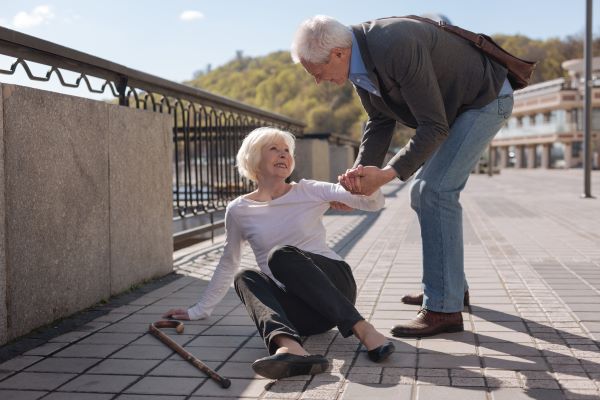A fall can shake more than just a person’s confidence—it can shake their entire sense of security.
Suddenly, stairs seem steeper, rooms feel riskier, and everyday tasks become tainted by fear. For many older adults in Canada, the hardest part isn’t the physical recovery—it’s learning how to trust their body again.
But here’s the good news—confidence can be rebuilt. With patience, empathy, and the right support systems in place, seniors can feel secure, empowered, and ready to move forward safely again.
7 Ways to Help an Older Adult Regain Confidence After a Fall
1. Listen With Empathy
First and foremost, let them talk. Many older adults don’t just need physical healing—they need emotional support, too. Validate their fears without brushing them off or rushing them to “get over it.” By simply listening without judgement, you’re already helping them take the first step towards healing.
2. Encourage a Safe, Gradual Return to Activity
After a fall, it's normal for seniors to feel hesitant about moving. Encourage them to stay active—but gently and safely. With guidance from a healthcare professional or physiotherapist, they can rebuild strength and balance at a pace that feels right for them.
Even short daily walks, seated exercises, or gentle stretches can help restore mobility and boost confidence.
3. Make Their Home a Safer Place
A safe home environment makes a world of difference in preventing future falls and easing fear. Start with small changes like:
- Removing loose rugs and clutter
- Installing grab bars in bathrooms
- Improving lighting throughout the home
- Adding non-slip mats where needed
Installing an Acorn stairlift is another powerful way to reduce fall risk on stairs, which are often one of the most hazardous areas in the home. With a stairlift, your loved one can feel secure while moving freely between floors—without the worry.
4. Focus on What They Can Do
After a fall, it’s easy to focus on limitations, but shifting the focus to what they can do helps rebuild a sense of control. Celebrate small wins—like preparing a meal, walking to the mailbox, or climbing a few steps with ease.
This positive mindset fuels motivation and reminds them that their strength is still there, even if it looks a little different now.
5. Reinforce Their Independence
It may be tempting to do everything for your loved one, but too much assistance can increase feelings of helplessness. Instead, ask how you can help and encourage them to do tasks on their own when it’s safe.
The goal is to support—not overshadow—their independence.
6. Connect Them with Others
Isolation can deepen the fear of falling that sometimes follows a fall. Encourage social interaction with family, friends, or even local support groups for older adults recovering from falls. Knowing they’re not alone can be deeply reassuring, and seeing others thrive after a fall can be incredibly inspiring.
7. Consider Professional Support
If the fear of falling is starting to limit your loved one’s life, consider speaking to a family doctor, physiotherapist, or counsellor. There are fall-prevention programmes, balance classes, and emotional support services available specifically to help older adults in Canada regain confidence after a fall.
Creating a Confident, Safe Space with Acorn Stairlifts
Helping a loved one recover from a fall is about more than physical healing—it’s about restoring peace of mind. At Acorn Stairlifts, we’re proud to provide tools that support both safety and independence.
An Acorn stairlift doesn’t just help your loved one move safely up and down the stairs—it helps them regain control over their home and their life. Because everyone deserves to feel safe, strong, and confident in the place they call home.
Contact Acorn Stairlifts today for a free, no-obligation quote and learn how we can help make your home safer—one step at a time.

